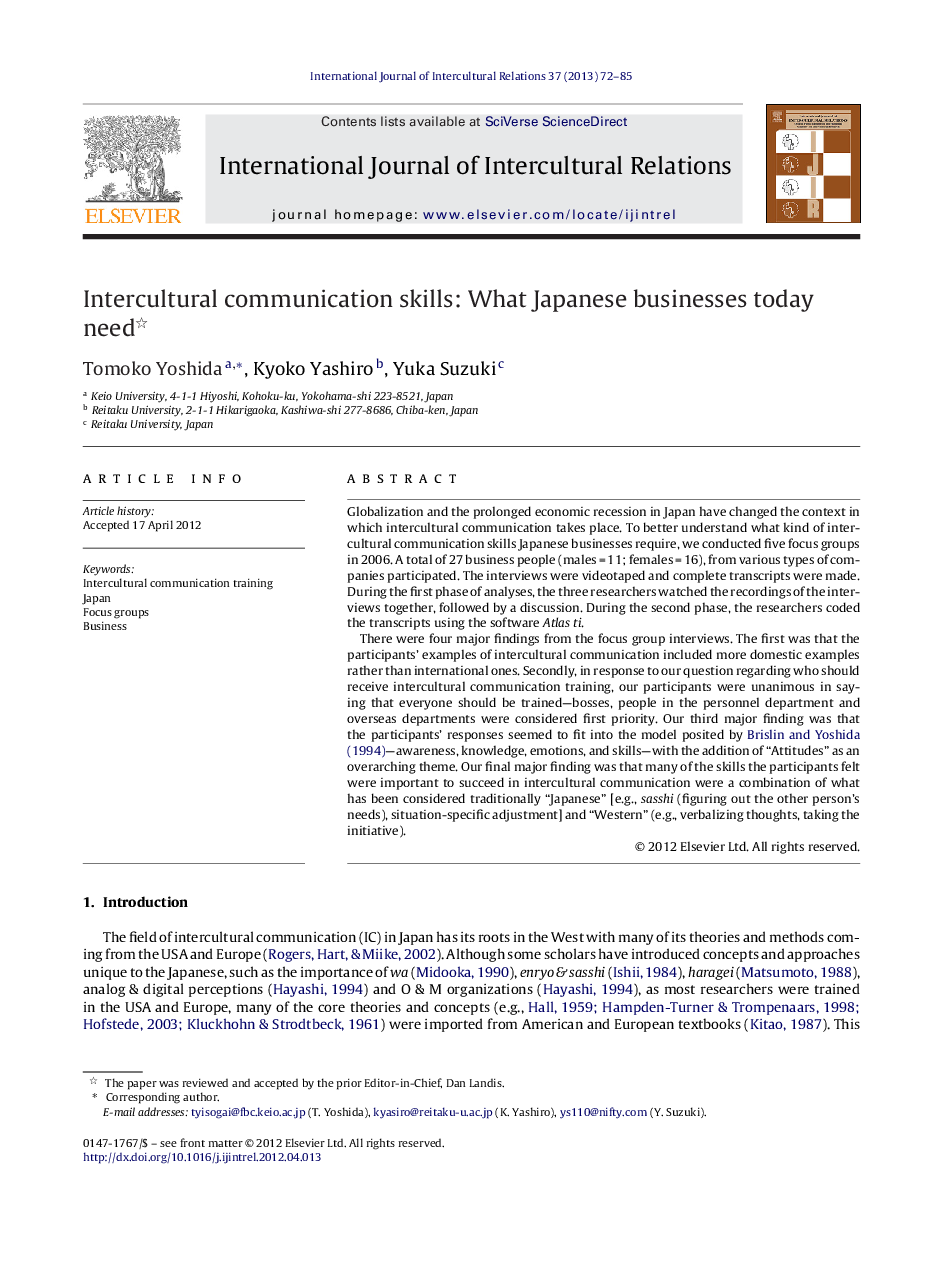| کد مقاله | کد نشریه | سال انتشار | مقاله انگلیسی | نسخه تمام متن |
|---|---|---|---|---|
| 947199 | 1475759 | 2013 | 14 صفحه PDF | دانلود رایگان |

Globalization and the prolonged economic recession in Japan have changed the context in which intercultural communication takes place. To better understand what kind of intercultural communication skills Japanese businesses require, we conducted five focus groups in 2006. A total of 27 business people (males = 11; females = 16), from various types of companies participated. The interviews were videotaped and complete transcripts were made. During the first phase of analyses, the three researchers watched the recordings of the interviews together, followed by a discussion. During the second phase, the researchers coded the transcripts using the software Atlas ti.There were four major findings from the focus group interviews. The first was that the participants’ examples of intercultural communication included more domestic examples rather than international ones. Secondly, in response to our question regarding who should receive intercultural communication training, our participants were unanimous in saying that everyone should be trained—bosses, people in the personnel department and overseas departments were considered first priority. Our third major finding was that the participants’ responses seemed to fit into the model posited by Brislin and Yoshida (1994)—awareness, knowledge, emotions, and skills—with the addition of “Attitudes” as an overarching theme. Our final major finding was that many of the skills the participants felt were important to succeed in intercultural communication were a combination of what has been considered traditionally “Japanese” [e.g., sasshi (figuring out the other person's needs), situation-specific adjustment] and “Western” (e.g., verbalizing thoughts, taking the initiative).
► We examined intercultural communication skills Japanese businesses required.
► Domestic examples of intercultural communication predominated.
► Participants unanimously felt the need for intercultural communication training.
► We extended Brislin and Yoshida's (1994) framework by adding “Attitudes.”
► Many skills mentioned were a mixture of “Japanese” and “Western” concepts.
Journal: International Journal of Intercultural Relations - Volume 37, Issue 1, January 2013, Pages 72–85